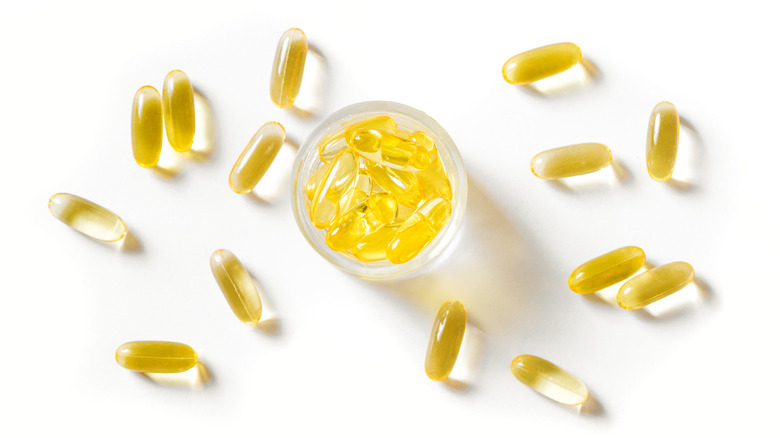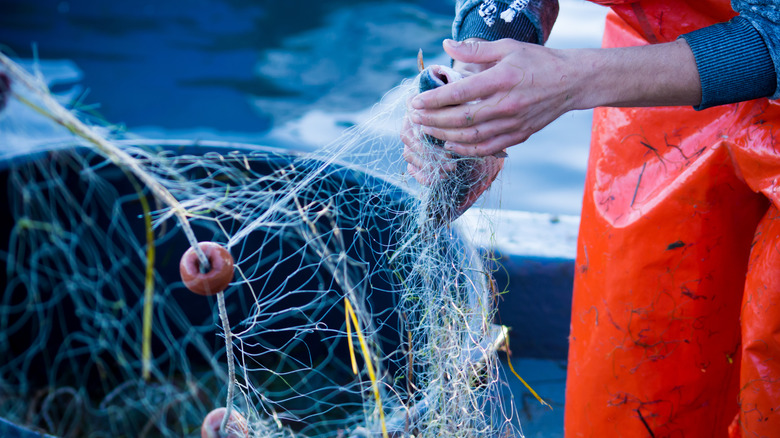This Sustainable Fish Oil Supplement Is Improving Your Health
Most of us know that getting enough omega-3 is important for good health. Doctors, dieticians, and the American Heart Association (AHA) have recommended for years that we include at least 2 3-ounce servings of fish in our diets every week. The calls for more fish have gotten louder as the list of health benefits associated with omega-3 fatty acids — especially EPA and DHA, which are potent in fatty fish — continues to grow longer.
Omega-3s are important for the functioning of every cell in the body, especially the eyes and brain. They're also important for immune system function, proper digestion, fertility, fetal development, and cardiovascular health. "Fish are a package of nutrients that really don't exist anywhere else," Tom Brenna, a professor of nutrition and chemistry at Cornell University, told USA Today. Registered dietitian Anna Taylor explained to the Cleveland Clinic that those who consume omega-3s may have less plaque buildup in their arteries, which reduces the risk of heart attack and stroke. "Omega-3s lower triglyceride levels and may [also] slightly raise 'good' HDL cholesterol levels," Taylor told the Cleveland Clinic.
Despite the overwhelming health benefits associated with regularly eating fatty fish, most of us still don't do it. Only a slim 10% of Americans are actually getting the recommended 2 servings per week (via USA Today).
Some fish oil brands use sustainably-sourced fish
The reasons why people avoid omega-3 from fish are varied. Some hold back because of concerns about mercury levels, while others have limited access to good-quality fish. Some people didn't grow up eating it and/or just don't like the taste, and others are concerned about the environmental impact of fishing and the sustainability of fishing practices. Purified fish oil supplements have long provided an answer to the first 3 concerns, and now, several new products are also addressing the issue of sustainability.
When looking for a sustainably-sourced fish oil, it's important to look beyond the "sustainable" label on the bottle — the term has no firm, regulated standards associated with it (via More). Instead, check the ingredients list. If most of the fish listed are small — think anchovies, sardines, herring, and mackerel — it's likely that the product is not only low in toxins but also has a minimal environmental impact.
"Make sure it is third-party tested to ensure it is pure and safe and that it contains what it says on the bottle since fish oil can be contaminated with heavy metals," registered dietician Kylie Ivanir told Verywell Fit. "Make sure it does not contain fillers and that the fish they are using are listed on the bottle."


